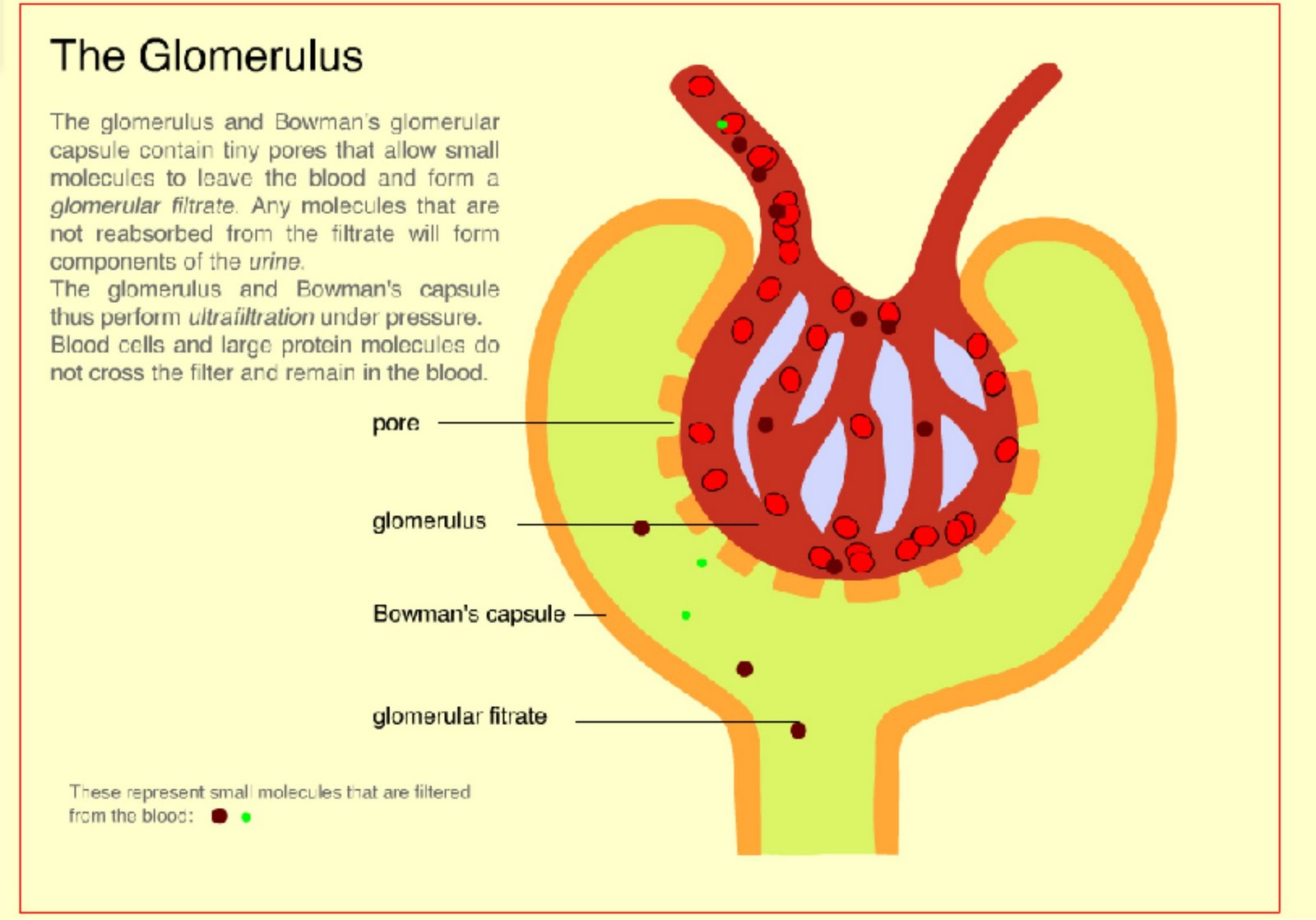The glomerulus is a specialized structure found within the kidneys, playing a pivotal role in the body's filtration system. As a crucial part of the nephron, the glomerulus is responsible for filtering blood, removing waste, and regulating fluid balance. Understanding its function and importance can provide insight into various kidney diseases and overall health. This article will delve into the intricacies of the glomerulus, exploring its structure, function, and the implications of its dysfunction.
Each glomerulus consists of a network of tiny blood vessels known as capillaries, which are encased in a protective layer called Bowman's capsule. This unique arrangement allows for efficient filtration of blood, where essential substances are reabsorbed, and waste products are excreted. In this way, the glomerulus serves as a critical checkpoint in the body’s waste management system. The health of the glomerulus directly influences kidney function, making it imperative to maintain its integrity.
In this article, we’ll answer some common questions about the glomerulus, including its structure, function, and the conditions that can affect it. By better understanding the glomerulus, we can appreciate its vital role in maintaining homeostasis and the potential consequences when it malfunctions.
What is the structure of the glomerulus?
The glomerulus is composed of a tuft of capillaries, which are the smallest blood vessels in the body. These capillaries are surrounded by Bowman's capsule, forming a structure that is essential for filtration. The glomerular capillaries are particularly unique due to their fenestrated endothelium, which allows for the passage of water and small solutes while preventing larger molecules, such as proteins, from entering the filtrate.
How does the glomerulus function in filtration?
The filtration process begins when blood enters the glomerulus through the afferent arteriole. The blood pressure in these capillaries forces water and solutes through the capillary walls into Bowman's capsule, where they form a filtrate. This filtrate contains waste products, excess salts, and water while retaining essential components like proteins and blood cells. The filtered fluid then moves into the renal tubules for further processing and reabsorption.
What role does the glomerulus play in homeostasis?
The glomerulus is integral to the body’s ability to maintain homeostasis, particularly concerning fluid balance, electrolyte levels, and acid-base balance. By filtering blood and regulating the composition of urine, the glomerulus helps ensure that the body maintains optimal conditions for cellular function. If the glomerulus is damaged or not functioning properly, it can lead to imbalances that affect overall health.
What diseases affect the glomerulus?
Several conditions can impact the health and function of the glomerulus, including:
- Glomerulonephritis: Inflammation of the glomeruli, often due to infection or autoimmune disease.
- Diabetic nephropathy: Damage to the glomeruli caused by prolonged high blood sugar levels.
- Hypertensive nephropathy: Kidney damage due to chronic high blood pressure.
- Focal segmental glomerulosclerosis: Scarring in some glomeruli, leading to protein leakage into the urine.
How can we assess glomerular function?
Assessing the function of the glomerulus often involves measuring the glomerular filtration rate (GFR), which indicates how well the kidneys are filtering blood. Various tests can help evaluate kidney health, including:
- Blood tests: Measuring serum creatinine levels to estimate GFR.
- Urinalysis: Checking for the presence of protein or blood in the urine.
- Imaging studies: Ultrasounds or CT scans to visualize kidney structure.
What lifestyle changes can support glomerular health?
Maintaining the health of the glomerulus and the kidneys can often be supported by adopting a healthy lifestyle. Some key practices include:
- Eating a balanced diet: Rich in fruits, vegetables, whole grains, and lean proteins.
- Staying hydrated: Drinking sufficient water to support kidney function.
- Regular exercise: Engaging in physical activity to maintain healthy blood pressure and weight.
- Avoiding tobacco and excessive alcohol: These substances can harm kidney health.
What treatments are available for glomerular diseases?
Treatment options for diseases affecting the glomerulus depend on the underlying cause and severity of the condition. Common approaches may include:
- Medications: Such as corticosteroids or immunosuppressants to reduce inflammation.
- Blood pressure control: Using antihypertensive medications to protect kidney function.
- Dietary modifications: Reducing protein intake or sodium to lessen the kidneys' workload.
- Dialysis or kidney transplant: In severe cases where kidney function is significantly impaired.
Conclusion: Why understanding the glomerulus matters?
The glomerulus is a vital component of kidney function, playing an essential role in blood filtration and homeostasis. By understanding its structure and function, as well as the diseases that can affect it, individuals can take proactive steps to maintain their kidney health. Awareness of the glomerulus and its importance can empower individuals to make informed lifestyle choices, seek appropriate medical care, and ultimately lead healthier lives.
You Might Also Like
Dio Johnson And Dwayne Johnson: Are They Related?Discovering Eliza Ibarra: A Deep Dive Into Her Life And Career
Unveiling The Truth Behind The Faith Ordway Nude Leak
Unveiling The Mat Wizard: The Journey Of Joshua Hammond In Wrestling
Unforgettable Moments At The Baddie Reunion: A Celebration Of Friendship And Style
Article Recommendations
- The Ultimate Guide To Understanding And Using Mydesi49 A Comprehensive Guide For Beginners
- Erica Stoll Net Worth A Closer Look At Financial Success
- How Old Is Ryan Toysreview In 2023 Ryan Kajis Age And Journey


